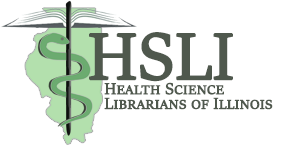(via Hannah Rempel, Oregon State University)
Have you created library instructional or outreach activities focused on student reading? If you have case studies, lesson plans, stories, or programmatic approaches aimed at developing active, engaged, mindful, and critical readers, we want to hear from you.
Focus of the Book
Librarians engage with student reading in a variety of ways: We work with students as they learn to become part of their disciplinary communities and practice reading scholarly articles, interpreting historical information from archival materials, and drawing conclusions based on information from unfamiliar source types like government documents, patents, figures, data, or works of criticism. This book will offer strategies for librarians working across a range of disciplinary areas so they can engage students who need to learn how to read in order to work, understand, and create new knowledge in their field.
We also work with students as they become critical, engaged citizens. We interact with students as they learn to make sense of information in web-based environments where authorship is often uncertain, take active steps to triangulate the information they find, and make decisions based on social media sources where bias and filter bubbles are inherent. We also work with student readers who come from a variety of backgrounds (e.g., non-native English speakers) and who are at different stages in their academic journey (e.g., transfer students or graduate students). This book will offer strategies that take into account librarians’ unique instructional opportunities to encourage students who read in order to understand, empathize, and create change.
Potential Chapter Topics May Include, But are Not Limited to, the Following
- Critical Reading – Defined and Examples in Practice
- Primary Source Literacy (i.e., Special Collections and Archives) and Critical Reading
- Reading for different student audiences – examples could include expert vs. novice approaches, reading instruction for first-year students, transfer students, or graduate students’ reading practices
- Programmatic Approaches to Reading Programs
- Community College Librarians and Critical Reading
- Reading Scholarly Articles
- Reading Beyond Scholarly Articles
- Reading Emotionally Difficult Material
- Reading in the Disciplines (i.e., sciences, social sciences, humanities)
- Reading for Non-native English Speakers
- Strategies for comprehending data or health resources
- Reading strategies for different source types (e.g., opinion pieces, government documents, books…)
Submission Procedure:
Please submit an initial chapter proposal description of up to 500 words and a tentative chapter title. As part of your proposal description, please include a brief description of the practical content you will include in your chapter (e.g., lesson plan, instructional activity, assignment, outreach plan, or model for creating a campus program). Please also include the author(s)’ names, titles, and institutional affiliations, along with a link to current CV (or copy relevant info from your CV, which may be abbreviated to focus on information relevant to your experiences either with instruction and outreach or relevant publishing history).
Please submit proposals here.
Proposals are due by Thursday, October 1, 2020**. Authors will be notified of their status (accept or decline) by November 15, 2020. A first draft of approximately 2000-5000 words (excluding endnotes and bibliography) will be due on February 15, 2021, and after receiving editorial feedback, a final draft will be due on July 31, 2021. Chapters must not be previously published or simultaneously submitted elsewhere.
**Special note – we very much understand that these are extremely strange and difficult times. If you have an idea but aren’t sure what your schedule looks like for fall/winter, please still contact us to express interest and share your idea. We’ll see what we can figure out together.**
Anticipated book publication date will be early 2022. Chapter authors will be able to make their chapters open access by posting final copies of their chapter in their institutional repositories.
For additional information, contact either:
Hannah Gascho Rempel, Professor and Science Librarian, Oregon State University, Corvallis, OR – Hannah.Rempel@oregonstate.edu
Rachel Hamelers, Teaching and Learning Librarian, Muhlenberg College, Allentown, PA – rachelhamelers@muhlenberg.edu
